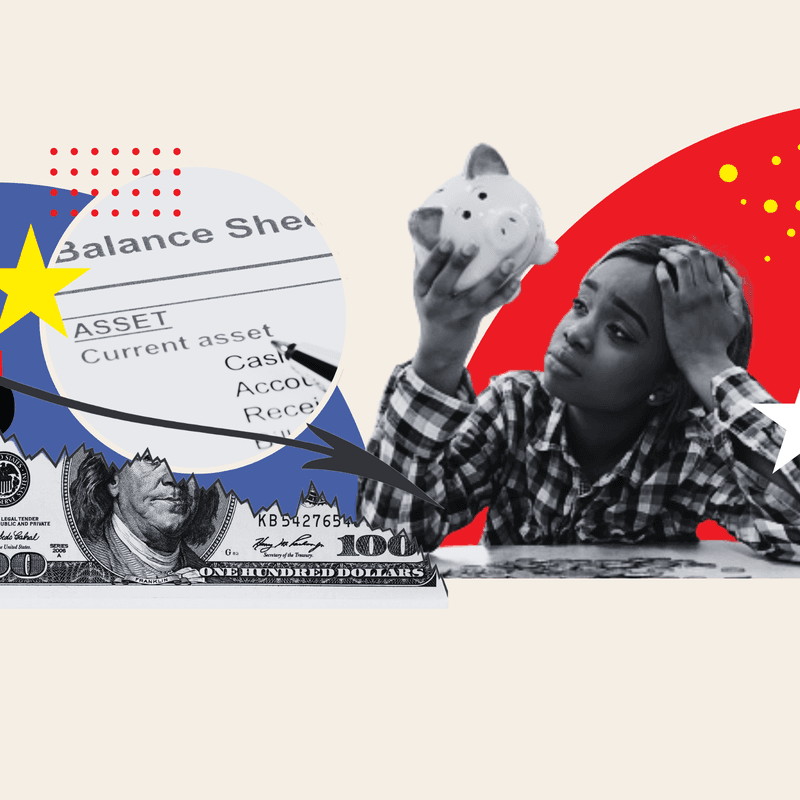Growing up in the digital age has given Gen Z unique expectations about how life should work. Many young adults find themselves shocked when the real world doesn’t match what they’ve seen online or what they believe they deserve.
The truth is, many of these ‘unfair’ situations are actually just regular parts of adult life that everyone faces. Here’s a reality check on things that might feel unfair but are simply part of growing up.
1. Working a job you don’t love
The idea that everyone should wake up excited about their career is a relatively new concept. Most people throughout history worked to survive, not for passion or fulfillment.
Finding meaning outside your paycheck is often the real secret to happiness. Your job might just be the thing that funds your actual passions and life goals. Even dream jobs have boring, frustrating aspects.
2. Waiting in line
In an era of instant downloads and same-day delivery, standing in physical queues feels like torture to many young people. Remember when downloading a single song took 30 minutes?
Lines exist because resources are limited and systems need order. Whether it’s at the DMV, concert venues, or grocery stores, everyone takes their turn. No amount of complaining or checking your phone will make the line move faster.
3. Having to pay rent
The shock of seeing how much of your paycheck goes to housing can be overwhelming. Housing costs have certainly increased, but paying for shelter has always been a fundamental adult responsibility.
Everyone starts somewhere—usually with roommates or modest apartments. Your first place isn’t meant to look like an Instagram influencer’s penthouse. Building wealth takes time, and most people spend years working toward homeownership.
4. Getting up early for work
That jarring alarm at 6 AM feels especially cruel after years of flexible school schedules or college life. Your body actually can adjust to early mornings—humans have been rising with the sun for thousands of years.
The working world runs on schedules that maximize productivity and collaboration. While remote work has brought some flexibility, most industries still operate during standard business hours. The good news? Your body will eventually adapt.
5. Earning respect instead of expecting it
Many young people enter workplaces expecting immediate respect based on their ideas or education. Experience matters in ways that aren’t immediately obvious when you’re starting out.
Respect develops through consistent performance, reliability, and how you handle challenges. Your academic achievements might get you hired, but your workplace reputation builds over time. Everyone starts at the bottom of the learning curve, regardless of how smart they are.
6. Not getting instant replies
Double-texting someone who hasn’t responded feels justified when you’re used to instant communication. People have complex lives happening away from their phones!
Adults juggle multiple responsibilities that frequently take precedence over responding to messages. Someone not texting back immediately doesn’t mean they’re ignoring you—they might be in meetings, focusing on work, or simply taking a mental break. Patience in communication is a skill worth developing.
7. Having to deal with difficult people
Unlike social media where you can block or unfollow anyone who bothers you, real life forces interaction with challenging personalities. That micromanaging boss or passive-aggressive coworker isn’t going anywhere.
Learning to navigate difficult relationships is an essential life skill. These situations teach conflict resolution, diplomacy, and emotional regulation. The ability to work effectively with people you don’t particularly like is highly valued in every profession and relationship.
8. Doing chores even when tired
After a long workday, the last thing anyone wants is to tackle dishes or laundry. Welcome to adulthood—where basic maintenance tasks don’t care about your energy levels.
The reality is that no magical cleaning fairy appears when you’re exhausted. Developing systems and habits makes these inevitable tasks more manageable. Small daily efforts prevent overwhelming weekend cleanups. Everyone feels the same reluctance—they just do it anyway.
9. Budgeting and living within your means
Social media showcases lavish lifestyles that make modest living seem unfair. The financial highlight reel you see online rarely reflects reality—many influencers are drowning in debt behind those perfect posts.
Financial limitations aren’t personal failures; they’re universal challenges. Most young adults start with entry-level salaries that barely cover essentials. Learning to delay gratification and make thoughtful spending choices is part of maturing. Financial freedom comes from consistency, not overnight success.
10. Not being praised for showing up
Remember getting gold stars just for completing basic assignments? Adult life operates differently—simply meeting minimum expectations rarely warrants special recognition.
In professional settings, the baseline assumption is that you’ll fulfill your responsibilities. Recognition comes from exceeding expectations, not meeting them. This shift can feel jarring when you’re accustomed to praise for participation. The upside? When you do receive recognition as an adult, it genuinely means something.
11. Criticism from bosses or teachers
Feedback that isn’t wrapped in compliments can feel like a personal attack. Professional criticism is actually valuable information that helps you improve—not a judgment of your worth as a person.
Learning to separate your identity from your performance takes practice. The most successful people actively seek constructive criticism rather than avoiding it. They understand that discomfort is the price of growth. Your ability to receive feedback gracefully can become a competitive advantage.
12. Being held accountable for mistakes
Making mistakes feels terrible, especially when there’s no reset button like in video games. Everyone messes up—what matters is how you respond afterward.
Accountability means acknowledging errors without excessive excuses or defensiveness. It’s uncomfortable but builds trust and integrity. The adult world respects those who take responsibility more than those who deflect blame. Your reputation for accountability will follow you throughout your career.
13. Job interviews that feel uncomfortable
The artificial nature of job interviews—where you must simultaneously appear confident yet humble, qualified yet eager to learn—feels like an impossible performance. Everyone finds interviews awkward, even seasoned professionals.
Interviewers expect some nervousness and aren’t looking for perfection. They’re trying to gauge your skills, potential, and fit with their team. Preparation helps, but the discomfort never completely disappears. Each interview improves your ability to articulate your value, regardless of the outcome.
14. Following dress codes or workplace norms
Expressing individuality through appearance is important to many young adults. The reality is that certain environments have appearance expectations—whether explicit or unspoken.
Professional settings often require conformity in attire because you represent an organization, not just yourself. While dress codes have relaxed in many industries, understanding contextual appropriateness remains valuable. Save your most expressive looks for personal time, where they won’t potentially undermine your professional credibility.
15. Life not going according to plan
The carefully plotted life timeline—college by 22, dream job by 25, house by 30—rarely unfolds as expected. Detours, setbacks, and unexpected opportunities are the norm, not the exception.
Most successful people’s paths look like scribbles, not straight lines. The ability to adapt when things don’t go as planned is far more valuable than perfect execution of an original plan. Resilience—bouncing back from disappointments—is what ultimately determines how far you’ll go.
16. Having to earn promotions over time
The frustration of watching others move up while you feel stuck is universal. Career advancement rarely happens on your preferred timeline.
Promotions typically require demonstrated capability at your current level before moving up. Companies invest in people who have proven themselves consistently over time. While exceptional performers sometimes advance quickly, most successful careers involve periods of plateau where you’re building critical experience. Patience combined with continuous improvement is the winning strategy.
17. Doing tasks you dislike regularly
Even dream jobs include unpleasant responsibilities. No career path—however glamorous it appears—is free from tedious, frustrating, or challenging aspects.
Professional success often comes from willingness to embrace the unglamorous parts of your role. The graphic designer still deals with difficult clients. The doctor still handles paperwork. The ability to maintain quality and attitude during less enjoyable tasks demonstrates maturity and professionalism. This consistency sets high performers apart.
18. Being told “no” without explanation
Rejection without detailed feedback feels especially harsh when you’re used to transparent communication. Sometimes “no” is the complete answer, with no additional context forthcoming.
Job applications, creative submissions, and personal requests often receive minimal explanation when declined. This isn’t personal—it’s usually about limited time and resources. Learning to accept rejection gracefully without demanding justification is part of emotional maturity. Focus your energy on opportunities within your control rather than explanations you may never receive.
19. People disagreeing with your opinion
Having your viewpoint challenged can feel like a personal attack when you’re used to curated social media feeds that reinforce your beliefs. Disagreement is actually healthy and inevitable in diverse environments.
Professional and personal growth comes from exposure to different perspectives. Strong ideas emerge from respectful debate, not echo chambers. The most influential people aren’t those who never face opposition—they’re those who can articulate their position clearly while remaining open to valid counterpoints.
20. Not getting a trophy just for trying
“Participation awards” created expectations that effort alone deserves recognition. In most adult contexts, results matter more than intentions or effort.
The professional world generally rewards outcomes, not attempts. This feels harsh initially, but it ultimately pushes you toward greater achievement. The good news? Real accomplishment—even small wins—brings deeper satisfaction than any participation trophy. The pride from genuine achievement after struggle is something no external validation can match.




















